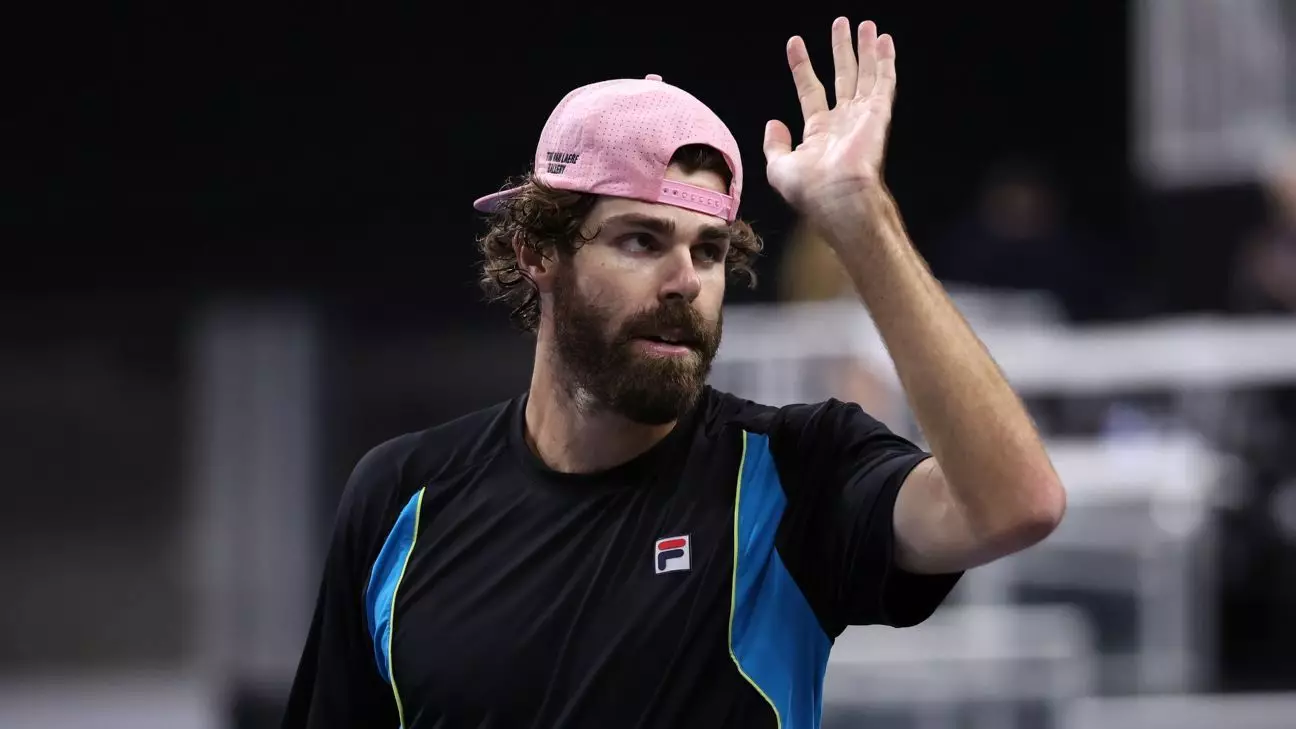In a dramatic showdown at the Dallas Open, Reilly Opelka found himself embroiled in controversy that went beyond the tennis court. During a pivotal moment in his match against Cameron Norrie, Opelka noticed a spectator who disrupted his concentration by coughing repeatedly. Frustrated and feeling disrespected, Opelka confronted the fan mid-serve, demanding him to leave and alleging intent behind the disruptive coughing. This confrontation ultimately led to a code violation issued by chair umpire Greg Allensworth, culminating in a penalty for Opelka—a decision that has stirred significant debate within the ATP community.
The Role of Umpires in Professional Tennis
In professional tennis, referees and umpires are crucial in maintaining order and ensuring fair play. Yet, this incident raises critical questions about the efficacy and authority of officiating in high-stakes matches. Opelka’s assertion that Allensworth is among the “worst ref on the ATP” challenges the credibility of umpiring decisions, particularly when such calls can directly influence match outcomes. What happens when a referee’s inadequate response to a situation exacerbates the player’s frustration, perhaps even altering the course of the game? This situation serves as a reminder of the delicate balance umpires must maintain between enforcing rules and recognizing the emotional gravity faced by players.
Opelka did not merely vent his frustration; he called for tangible repercussions for Allensworth, expressing his hope that the ATP would reassess the umpire’s role. His demand for a suspension is significant; it suggests that actions by officials have real consequences on players and their careers. As Opelka noted, if he had lost the match due to the umpire’s performance, the financial ramifications would have disproportionately affected him, while Allensworth would receive no penalties. This disparity raises debates about accountability within professional sports, spotlighting a need for a more robust system that addresses officiating errors and their consequences.
Beyond the immediate incident, Opelka’s assertions bring to light a broader dialogue about sportsmanship and respect among players, officials, and spectators. While players are expected to maintain composure in the face of challenges, the allowance for fan behavior raises questions about the limits to which they should tolerate disruption. In this case, Opelka contended with a lack of support from the umpire in addressing the unruly spectator, leaving him feeling he had to advocate for respect in a one-sided manner. This positions players as advocates for their dignity within a sport that often demands adherence to decorum, complicating the narrative surrounding sportsmanship.
Opelka’s encounter with umpire Allensworth at the Dallas Open serves as a crucial case study for officiating in tennis. As Opelka prepares to face third seed Tommy Paul in the following round, the fallout of this controversy remains to be seen. This incident not only challenges umpire authority but also calls for a reflective moment within the ATP and sports at large regarding the responsibilities of officials. As the sport evolves, so too must the frameworks of accountability and respect, ensuring that both players and umpires can navigate the competitive landscape with fairness and dignity.


Leave a Reply